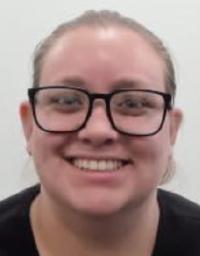Contact
Sports Medicine and Rehabilitation Service
Telephone
(530) 754-5411
Email
sportsmedrehab@ucdavis.edu
Location
UC Davis Health Science District
Veterinary Medical Teaching Hospital
1 Garrod Drive
Davis, California
Sports Medicine and Rehabilitation Service
The Sports Medicine and Rehabilitation Service at the UC Davis Veterinary Medical Teaching Hospital focuses on comprehensive patient-centered approach to provide patients a full spectrum of treatments and the highest-quality care by combining science-based or proven therapies from conventional medicine, complementary medicine, palliative medicine, and rehabilitation.
Our sports medicine and rehabilitation program is unique. Not only are we part of one of the largest veterinary teaching hospitals in the world, but we are also one of the few veterinary schools with a dedicated service for the rehabilitation of animals recovering from surgery, injury, or illness. Our mission is to serve and partner with you to find the best solutions for your companion animals to promote healing and encourage long-term health and wellness.
The sports medicine and rehabilitation team works closely with other specialty services in the hospital, as well as referring veterinarians, to identify all aspects of a patient’s case, including underlying causes to injuries and discovering multidisciplinary treatment options to accelerate recovery and optimize patient outcome.
The service is led by a board-certified orthopedic surgeon and sports medicine and rehabilitation specialist with decades of experience in animal physical therapy and rehabilitation.
In addition to faculty, the service includes a resident veterinarian who is solely committed to the service while completing specialty training in sports medicine and rehabilitation.
Rounding out the service team is a certified veterinary rehabilitation practitioner, a certified physical therapist, and a certified canine rehabilitation veterinary technician, as well as dedicated animal health technicians trained in rehabilitation.
Patients of the Sports Medicine and Rehabilitation Service are treated in a 1,300-square-foot open treatment area that resembles two gyms and two private treatment rooms. The service’s state-of-the-art equipment includes underwater treadmills, land-based treadmill, therapeutic exercise equipment, photobiomodulation (class 3b and 4 laser), electrocorporeal shockwave, electrotherapy (TENS and NMES), magnetic field therapy, therapeutic ultrasound, mobility aids, wheelchair, and equipment to fabricate thermoplastic orthotics (braces) or prosthetics.
Many different types of patients benefit from our service, including patients with the following conditions:
- Acute, chronic, neuropathic, or myofascial pain
- Post orthopedic or neurologic surgery
- Non-operable orthopedic or neurologic disorders (osteoarthritis, patellar luxation, fibrocartilaginous embolism, etc)
- Musculoskeletal conditions (amputation, tendinopathy, etc)
- Geriatric/aging-associated conditions (osteoarthritis, muscle wasting, etc)
- Medical conditions (cancer, digestive disorders, skin diseases, endocrine disorders, etc)
- Weight concerns (overweight or underweight)
- Sports injuries and conditioning for working/athletic dogs
- Side effects of medical treatment
- Unmanageable clinical signs or side effects
Service Facility and Therapy
- Functional Assessment Equipment
- Acupuncture with various techniques and styles
- Medical Manipulative Therapy
- Massage Therapy
- Photobiomodulation (Class 3b and 4 Laser)
- Extracorporeal Shockwave
- Electrotherapy (TENS, NMES)
- Therapeutic Ultrasound
- Magnetic Field Therapy
- Regenerative Medicine
- Underwater Treadmills
- Land Treadmills
- Therapeutic Exercise Equipment
- Orthotics and Prosthetics Fabricating Equipment
Make a gift to support the Sports Medicine and Rehabilitation Service
Clinical Activities and Procedures
Your initial visit to the Sports Medicine and Rehabilitation Service will include a comprehensive evaluation to help match our offerings to your pet's individual needs. This involves assessing medical problems, providing thorough examinations (functional, musculoskeletal, neurologic), performing diagnostic tests (if needed), and formulating treatment goals and options for your pet affected by pain, impaired mobility, or chronic diseases. Our trained doctors will help you develop an individualized plan to complement your pet’s current health care. Your pet’s treatment options may include acupuncture, rehabilitation, dietary supplements, manipulative therapy, photobiomodulation, regenerative medicine, home exercises, or weight management, etc.
Owners are an integral part of their pets’ treatment and recovery process. Generally, patients will be scheduled for treatment sessions throughout the week. Treatment frequency and duration varies depending on the individual patient needs and the type of therapy received. Serial assessment will be performed at regular intervals to assess the effects of therapy. The treatment plan may be modified based on progress, subsequent injury, or other factors that may arise.
Multimodal Pain Management
We provide patient-centered, multimodal pain treatment for your pet experiencing acute, chronic, or neuropathic pain by combining both pharmacologic and nonpharmacologic methods such as rehabilitation, acupuncture, manipulative therapy, photobiomodulation (laser), extracorporeal shockwave, electrotherapy, regenerative therapy, dietary supplements, etc., to improve your pet’s pain and to increase his/her comfort level during hospitalization or at home.
Rehabilitation and Fitness
Rehabilitation focuses on helping pets recover from injuries or illnesses and improving their mobility and strength. We utilize multimodal techniques with manual therapy, therapeutic exercises (gait, balance, strengthen, endurance), home exercise plan, and assistive device (cart, orthotics, orthotics) to improve mobility, build muscles, increase fitness, and weight loss. We also offer therapeutic modalities such as photobiomodulation (laser), electrotherapy, acupuncture, shockwave therapy, magnetic therapy, regenerative therapy, etc. Rehabilitation can benefit pets recovering from surgeries, neurological conditions, and musculoskeletal injuries. It can also help senior pets maintain their mobility and improve their overall health and wellbeing.
Integrative Health
Integrative health or medicine combines the best of complementary treatments with mainstream conventional medicine to provide care for the whole animal to improve health and treat diseases. It can help animals with a wide range of health issues, and maximize successful treatment outcomes in ways that is often not possible with a single medical system. We offer our patients a variety of integrative techniques including acupuncture, manipulative therapy, regenerative medicine, therapeutic modality, dietary supplements, nutritional consult, in conjunction with conventional medical care.
Acupuncture
Acupuncture is a common form of integrative medicine that has been used in people and animals for centuries. It is a safe treatment that involves the insertion of thin, sterile needles into specific points on the body to stimulate the nervous system and promote healing. In pets, acupuncture is typically used to manage pain and improve mobility, but it can also be used to treat a wide range of other conditions such as allergies, respiratory problems, gastrointestinal disorders, and many other chronic diseases.
Palliative & Hospice Care
We are dedicated to providing comfort and optimizing the quality of life for animals affected by illnesses that are chronic, serious, or unmanageable by medical treatment. Palliative care involves a variety of treatments, including multimodal pain management, nutritional support, and hospice care. Hospice care is a type of palliative care that is specifically designed for pets who are nearing the end of their life. Our program not only focuses on your pet’s quality of life, but we also work closely with you to provide emotional support, guidance, and at-home care education during a difficult time.
Frequently Asked Questions
- How do I schedule a new appointment? Do I need a referral from my veterinarian?
- Please call 530-754-5411 or email sportsmedrehab@ucdavis.edu to make an appointment.
You do not need to be referred from your veterinarian. Although we do prefer referrals by veterinarians, many pet owners come on their own to explore the benefits of our service for their pets.
We work closely with your primary care veterinarian. We often communicate with your veterinarian regarding your pet’s diagnostic findings and treatment plan. Your veterinarian can access your pet’s medical record in the VMTH Client Portal. - My dog is limping, but my vet couldn’t figure out what’s wrong with her. Could I make an appointment to see your service without diagnosis?
- Yes. Our team has specialized knowledge and skills in the diagnosis, treatment, and prevention of musculoskeletal and neurological injuries in animals.
We work closely with other specialty services in the hospital. After assessment, if we think that your pet may require surgery or other procedures, we can facilitate consultations from our neurology, surgery, or other specialty services. - Do you see agility dogs or working dogs?
- Yes. Our doctor is board certified in Veterinary Sports Medicine and Rehabilitation who has specialized knowledge and skills in the diagnosis, treatment, and prevention of musculoskeletal and neurological injuries in animals including agility dogs and working dogs.
- Can I use your service as my pet’s primary care?
- No. We do not offer primary care service for pets such as vaccinations, parasite control, dental cleaning, etc.
If your pet needs a primary care veterinarian, please schedule an appointment with the UC Davis Primary Care Service. - Do you offer diagnostic tests for my pet?
- Yes. We may request that your pet undergoes diagnostic testing such as blood tests, urine tests, radiograph, ultrasound, CT, etc. to confirm or rule out conditions and diseases before creating a comprehensive treatment plan.
The UC Davis veterinary hospital's Diagnostic Imaging Service offers state-of-the-art imaging services include digital radiography (x-ray), fluoroscopy, computerized tomography (CT scan), magnetic resonance imaging (MRI), positron emission tomography (PET scan), ultrasonography, and nuclear medicine. - After initial evaluation, how do I schedule, reschedule, or cancel an appointment for my pet’s therapy session (rehabilitation and/or acupuncture etc) ?
- Please call 530-754-5411 or email sportsmedrehab@ucdavis.edu to schedule, reschedule, or cancel an appointment for your pet’s therapy session(s), such as rehabilitation, acupuncture, or chiropractic, etc.
Our appointments often fill quickly. We strongly recommend that you schedule your pet’s therapy sessions in advance if you prefer a certain day and time.
We require that a 48-hour notice be provided if you need to cancel or reschedule an appointment. This will allow us to offer the appointment time to another patient. - What information do I need when making a new appointment?
- We will want the presenting problem that your pet is having, client information, patient information, information on your primary care provider and the referring veterinarian.
- What do I need to do after I made my new appointment?
- We will want the presenting problem that your pet is having, client information, patient information, information on your primary care provider and the referring veterinarian
After that, our service coordinator will email you our New Patient Intake Form, Functional Questionnaire, and Appointment Checklist & Policy. They must be completed and emailed back to sportsmedrehab@ucdavis.edu no later than 3 days prior to the appointment (if you are unable to email them, please bring them to the appointment).
If you are unable to complete the forms prior to the appointment, you will need to check in to you appointment at least 30 minutes early to fill out the forms - Do I need to contact my primary veterinarian to email my pet’s medical records to you?
- Yes. You will need to contact your primary veterinary clinic to email us your pet’s medical records (recent 2-3 years), including reports of blood or lab tests, imaging (such as X-rays), or other related records to sportsmedrehab@ucdavis.edu a minimum of 1 week before your appointment. Failure to do so will delay your pet’s appointment with us.
- What do I need to bring to my appointment for my pet?
- You do not need to bring anything to your appointment if you have:
• Completed and emailed us the Intake Form and Functional Questionnaire.
• Your primary veterinary clinic emailed us all your pet’s medical records.
Here are a few things you could bring to your appointment to facilitate our assessment and discussion of your pet:
• Videos of your pet’s lameness or problem of walking at home.
• Medications and dietary supplements (written list or bottles) that your pet’s taking.
• Questions regarding your pet’s condition. - Do I need to fast my pet before the new appointment?
- Yes. There may be times when your pet will need to have blood work and/or radiographs (x-rays). Because your pet will receive sedation prior to taking the blood or radiographs, you will need to withhold food after midnight the night before. Water is fine in the morning. However, if your pet is less than six months of age, has special needs (such as diabetic), or you have other reasons for concern about fasting, please call us for further instructions.
- How long will my appointment last?
- Your pet’s first appointment usually takes about 3 hours because our doctor will perform a thorough and comprehensive examination and design a patient-centered treatment plan for your pet.
If your pet needs diagnostic tests (such as x-rays) or specialty consultation (such as neurology consult), be prepared to be here several hours and possibly all day.
Because we are a teaching hospital, the appointments do take longer depending on tests that may need to be done for your pet's presenting problem. We recommend bringing some reading materials along. We do have a cafeteria, and there is a beautiful arboretum nearby if you'd like to take a walk while waiting. - What can I expect when I come to my first appointment?
- Most times you will first see a clinical rotating veterinary student who will take a medical history about your pet. After that, he/she will bring your pet to the Sports Medicine and Rehabilitation Service. We currently do not allow pet owners to be present during the examination. Students will perform a thorough examination on your pet under the supervision of a doctor (faculty or resident). The student will then discuss your pet's case with the doctor. After we have identified and designed our plan, you will be invited to the examination room with your pet, and we will then discuss diagnostic and treatment options appropriate for your pet, as well as answer any questions you may have.
This is a teaching hospital, and one of our primary missions is teaching. This means that often appointments are longer than they would be at your primary veterinarian. Thank you for your patience. - Will my pet receive treatment at the first appointment?
- We generally do not perform any treatment/therapy on your pet’s first visit to minimize your pet’s stress.
However, if deemed necessary, we do perform treatment/therapy during the first visit, such as patients with severe pain.
Regardless, you will be provided with a plan of care that can be started immediately while waiting to get in for therapy sessions, such as home exercises, pain medications, supplements, and nutritional recommendation. - How long will the treatment session take?
- Rehabilitation, acupuncture, and chiropractic each will take about 45 min.
Combined therapy (rehabilitation with acupuncture/chiropractic) will take about 1.5 to 2 hours. Anxious, larger, or paralyzed dogs may take longer. - Can I be present during the examination or treatment of my pet?
- No. We currently do not allow owners to be present during examination and treatment.
Dogs can easily become over-excited when they are with their owner, and some dogs are protective of their owners. This could make examination and treatment of your dog difficult, if not impossible. Dogs also tend to hide their pain and lameness when they are excited.
However, after examination or treatment, our doctor, technician, staff, or student will discuss with you about your pet’s therapy session and progress on each visit. - How much will my appointment cost?
- You can expect to receive a written estimate and may discuss cost estimates and options available with the doctor in charge of your case.
Full payment for services is required at the end of your visit. The hospital accepts cash, checks, Visa, MasterCard, Discover, American Express, and ATM debit cards. - Can I get a copy of the medical record?
- Yes, please contact the receptionist to request for a copy of your pet's medical records at no charge.
You also can review your pet's medical records in the VMTH Client Portal.
Our service does not handle sending medical records or test results to you or your primary veterinarian. Please contact the receptionist. - Can I get a copy of the diagnostic images?
- For a copy of any diagnostic imaging such as radiology, ultrasound, nuclear medicine, MRI, CT, or PET, please contact our Diagnostic Imaging Service coordinator at (530) 752-9449. There is a charge for any copies of diagnostic imaging studies.
Our service does not handle sending diagnostic images to you or your primary veterinarian. Please contact the receptionist. - Will my doctor receive a copy of the medical record?
- Yes. Your veterinarian will receive a copy of your pet's visit to the hospital after the visit.
Your veterinarian will also receive an email from our doctor regarding the findings, assessment, treatment plan of your pet. Your veterinarian can also access your pet’s medical record through the VMTH Client Portal. - Will my doctor receive a copy of the diagnostic images?
- If your primary veterinarian needs a copy of the diagnostic image, he/she will need to communicate with our service coordinator at 530-754-5411 or email sportsmedrehab@ucdavis.edu.
Acupuncture Frequently Asked Questions
- What is acupuncture? How does it work?
- Veterinary acupuncture is part of Traditional Chinese Veterinary Medicine (TCVM) and has been practiced in China for over 2,000 years. In the past decades, there has been a significant increase in the use of acupuncture in animals in Europe and the United States.
Acupuncture involves inserting very fine needles into specific points (called acupoints) on the body to elicit a therapeutic response. Modern research reveals that acupoints are located in areas of the body with a high density of nerve endings, mast cells, small arterioles and lymphatic vessels. Stimulation of acupuncture points results in the body’s release of endorphins, serotonins, and other transmitters. Current research offers strong support of acupuncture’s role in pain relief. Acupuncture’s role in “balancing” the body as a whole and its effects on internal organs is less understood but continues to be an area of active human and veterinary research.
Acupuncture is of the most common form of integrative medicine. Acupuncture and TCVM consider the patient as a whole, and approach treatment by caring for all aspects of the individual and not just the diseased or damaged part; hence this theory is often referred to as “holistic.” - When is acupuncture indicated?
Clinical evidence indicates that acupuncture therapy can be effective as an adjunctive treatment in a variety of clinical conditions in animals, especially chronic diseases. Acupuncture is most commonly used in pain management, geriatric medicine (or chronic medical conditions), sports medicine (exercise related conditions) and discomfort associated with cancer.
Pain Management
Acupuncture can be effective in reducing or relieving acute, chronic, or neuropathic pain associated with osteoarthritis, surgery, injury, intervertebral disc disease, abdominal disorder, and cancer.Musculoskeletal Diseases
Acupuncture is often used as a complementary therapy for musculoskeletal diseases affecting the muscles, bones, and joints. Research suggests that acupuncture may be effective for relieving pain, reducing inflammation, and promoting healing in certain musculoskeletal conditions, such as osteoarthritis, hip dysplasia, elbow dysplasia, and muscle injury.Neurological Disorders
Acupuncture has been widely used for a range of neurological disorders affecting the brain, spinal cord, and peripheral nerves, such as Intervertebral disk disease (IVDD), fibrocartilaginous embolism (FCE), vestibular diseases, peripheral nerve injury or neuropathy, limb paresis or paralysis, facial paralysis, laryngeal hemiplegia, seizure disorders, urinary or fecal incontinence, etc. Stimulation of peripheral nerves by acupuncture can relieve pain, reduce inflammation, and repair injured nerves to improve mobility and function.Gastrointestinal Disorders
Animal and human studies have shown that acupuncture may be effective in a wide range of gastrointestinal disorders because of its effects on gastrointestinal motility, gastric acid secretion, and visceral (organ) pain. In veterinary medicine, acupuncture may be indicated for poor or no appetite, inflammatory bowel disease, megacolon, megaesophagus, regurgitation, vomiting, nausea, diarrhea, constipation, delayed gastric motility, colic, abdominal pain (such as colitis, pancreatitis, gastritis).Geriatric or Chronic Conditions
Geriatric patients may suffer from a variety of chronic conditions that hinder their quality of life. Some of these patients are too weak or compromised to tolerate conventional therapy, and acupuncture can provide safe and effective alternative treatment. Acupuncture may be indicated for generalized weakness, osteoarthritis, skin allergies, inflammatory bowel disease, constipation, diarrhea, asthma, chronic renal failure and behavioral problems.Sports Medicine
High performance animals such as agility and working dogs can suffer exercise or training related musculoskeletal diseases that may benefit from acupuncture therapy. Acupuncture can be used to reduce pain associated with arthritis, tendon/ligament injuries, and muscle soreness.Cancer Care
Cancer patients undergoing chemotherapy or radiation treatments may experience digestive upset, extreme fatigue, or general discomfort or pain. Acupuncture can often relieve or lessen some of these side effects and improve a patient’s quality of life.Palliative and Hospice Care
Patients experiencing chronic, unmanaged, or terminal illnesses, or struggling with multiple pain issues toward the end of life may find great comfort with acupuncture treatments. Acupuncture can provide relaxation, better quality sleep, improved appetite and decreased pain and anxiety.- What acupuncture methods are used?
- Treatment involves the placement in the skin of very fine, flexible, sterile, stainless steel needles that measure from 0.5 to 1.5 inches long (some even smaller needles are used for exotic animal pets). Depending on the condition that is being treated, needles will remain in for 10-30 minutes. Stimulation of the acupuncture points by needles can be enhanced by rotating the needles, or by attaching electrodes to deliver a very weak current (electroacupuncture). Heating needles with a burning herb (moxibustion) or injecting tiny amounts of vitamin B12 into acupuncture points may be used to treat some conditions.
- How long does a treatment session last and how many sessions will my pet need?
- Each session will last about 45 minutes. The number of sessions needed depends on the condition being treated. An acute problem may require 1-2 treatments within a week or two, while more chronic conditions may require 4-10 treatments spread over weeks to months. Some patients may be treated at regular intervals to prevent recurrence of degenerative conditions.
- Is acupuncture safe and does it hurt? What is its side effects?
- Acupuncture is a very safe procedure when performed by a veterinarian who is certified in acupuncture.
Acupuncture performed in humans has been described as initially feeling prickly, followed by tingling, warmth or a feeling of heaviness. As with humans, many of our animal patients progressively relax through the session and some even fall asleep.
The reports of negative side effects are rare in clinical cases. Typically, temporary lethargy, sleepiness, or thirsty is seen for 24-48 hours following an acupuncture treatment. - Who is qualified to perform acupuncture on animals?
- Only licensed veterinarians are eligible to practice acupuncture in most states in the USA, preferably one that has received proper trainings in veterinary acupuncture and is certified as a veterinary acupuncturist.
Rehabilitation Frequently Asked Questions
- What is rehabilitation? What do your rehabilitation service offer?
- Rehabilitation or physical rehabilitation is the treatment and management of injury or illness to decrease pain and restore function. If a pet has lost mobility or physical function due to injury, disease, disability or other conditions, your veterinarian may recommend rehabilitation help restore function, mobility, and quality of life. We work as a team to address your pet’s medical issues and functional concerns.
At the Sports Medicine and Rehabilitation Service, we offer personalized rehabilitation treatment for your pet. Our approach to therapy is truly state-of-the-art, and we offer multidisciplinary rehabilitation that may include:
Multi-Modal Pain Management (pharmacological and non-pharmacological options)
Manual and Manipulative Therapy
Hydrotherapy (underwater treadmill therapy and swimming)
Therapeutic Exercise (various equipment)
Photobiomodulation (Class 3b and 4 Laser)
Electrical therapy (TENS and NMES)
Extracorporeal Shockwave Therapy (ESWT)
Pulsed Electromagnetic Field Therapy
Acupuncture
Regenerative Medicine
Joint or Intralesional Injections
Orthotics, Prosthetics, Assistive Devices
Nutritional Therapy and Dietary Supplement - What are the benefits of rehabilitation?
- Optimize pain relieve
Accelerated recovery from injury
Decreased pain, inflammation and swelling
Improved blood flow and optimal healing in the injured area
Controlled, early mobilization to limit the effects of disuse
Safe and rapid restoration of normal movement patterns
Prevention of muscle atrophy and adverse effects of limb disuse
Improved strength, flexibility, postural control and balance
Earlier and safer return to function and normal activities
Weight loss in overweight or obese pets
Owner education on home exercise
Positive psychological effects for patient and owner
Prevention of secondary injury
Promote quality of life - What conditions commonly referred for rehabilitation?
- Impaired mobility (lameness or weakness)
Musculoskeletal injuries
Cranial cruciate ligament disease (post-surgical or non-surgical management)
Patellar luxation (post-surgical or non-surgical management)
Femoral head ostectomy (FHO)
Degenerative joint disease and Osteoarthritis
Hip or elbow dysplasia
Tendinopathy
Overweight or obesity
Peripheral nerve injuries
Spinal deformity
Intervertebral disc disease (IVDD) (post-surgical or non-surgical management)
Fibrocartilaginous emboli (FCE)
Degenerative myelopathy (DM) - How soon after surgery (knee, back, etc.) can my dog start rehabilitation?
- Rehabilitation can start immediately after surgery with techniques such as icing, passive range of motion, and massage. Acupuncture and electrical therapy (TENS and NMES) are effective for pain relief and stimulating nervous function to regain motor. Photobiomodulation (laser) is also benefit for reducing swelling and promote wound healing.
We encourage scheduling your initial consultation with us when you have secured a surgery date or after the surgery is performed on your pet.
After surgery, an examination with our rehabilitation veterinarian is required to enroll your pet in our rehabilitation program. After assessment, you will receive a thorough rehabilitation plan and video-based home exercise plan from us. - What techniques and therapy are included in each rehabilitation session?
- We utilize individualized and multimodal approach to help our patients on each of their rehabilitation session that involving the following 3 main categories:
Manual Therapy: passive range of motion, stretching, effleurage, petrissage, myofascial release, joint mobilizations, soft tissue mobilizations, etc.
Therapeutic Exercise: underwater treadmill, swimming, land treadmill, gait patterning or retraining, balancing and proprioceptive exercises, strengthening exercises, and conditioning, etc.
Therapeutic Modality: photobiomodulation (class 3b and 4 laser), extracorporeal shockwave, electrotherapy (TENS and NMES), magnetic field therapy, therapeutic ultrasound.
On each rehabilitation session, your pet will be assessed for pain, weakness, and progress, we then select techniques and therapies based on his/her goals and needs.
Additionally, we also offer acupuncture, manipulative therapy (chiropractic), regenerative therapy, and joint injection as part of the multidisciplinary rehabilitation approach for our patients. There are additional charges for these treatments. - Can I observe or participate in rehabilitation treatment?
- No. We currently do not allow owners to be present during treatment due to limited treatment space.
Dogs can easily become over-excited when they are with their owner, and some dogs are protective of their owners. This could make treatment of your dog difficult, if not impossible.
Your presence might also affect other dogs’ rehabilitation session as we treat 2-3 dogs at the same time every hour throughout the day.
However, after treatment, our doctor, technician, staff, or student will discuss with you about your pet’s therapy session progress and recommendations on each visit. We emphasize client education, and a home exercise plan is an important part of each patient's treatment. - Is rehabilitation painful for my pet?
- On the contrary. Our goal is to decrease pain in our patients. The calm environment of the rehab area with access to a courtyard provides a welcome change for hospital patients.
No invasive procedures are performed in this service, and patients are not restrained. - How many treatments are needed, and how long is each session?
- The length of the treatment program depends on the complexity of the case and the animal's short- and long-term conditioning needs. Treatment may take a matter of weeks or become part of an ongoing health management program.
On average, patients spend about 45 minutes per session, though treatment may range from 30 minutes to 2 hours. The length of each session depends on the diagnosis, complexity of condition, and techniques used.
Client involvement in home exercise also plays an essential role in determining the overall length and ultimate success of the rehabilitation. - Who performs the rehabilitation treatment?
- Each pet’s rehabilitation treatment plan is designed by our doctors.
On each session, rehabilitation is mainly performed by our licensed veterinary technicians and assistants who are trained in rehabilitation. They are closely supervised by a doctor on the Sports Medicine and Rehabilitation Service. - What kinds of animals come to rehabilitation?
- The majority of patients referred are dogs. However, we also see cats, horses, foals, sheep, goats, llamas, tortoises, rabbits, ferrets, parrots, and raptors.
Faculty

Denis J. Marcellin-Little, DEDV, DACVS (Small Animal), DACVSMR, ACVS Founding Fellow (Joint Replacement Surgery)
Professor

Sayaka Shiomitsu, DVM, CVA, CCRP
Staff Veterinarian
Staff

Leigh Ann L. Nilsson, BS, RVT, CCRP
Veterinary Rehabilitation Practitioner

Nicole Juarbe, PT, DPT, CCAT
Physical Therapist

Caitlin Furey, BS, RVT, CCRVT
Veterinary Rehabilitation Technician

Makenna Costa
Veterinary Assistant

Cristina Mancia
Veterinary Assistant and Service Coordinator

Megan Loscar, RVT
Small Animal Specialties Manager

